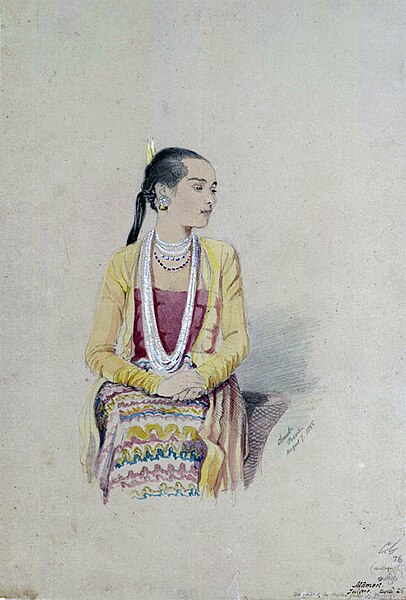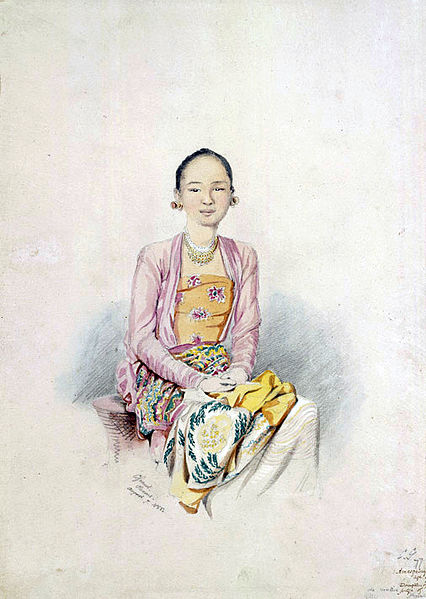
Through the generosity of the late Professor Benedict Anderson and Ajarn Charnvit Kasetsiri, the Thammasat University Library has acquired some important books of interest for students of Association of Southeast Asian Nations (ASEAN) studies, political science, literature, and related fields.
They are part of a special bequest of over 2800 books from the personal scholarly library of Professor Benedict Anderson at Cornell University, in addition to the previous donation of books from the library of Professor Anderson at his home in Bangkok. These items are shelved in the Charnvit Kasetsiri Room of the Pridi Banomyong Library, Tha Prachan campus.
Among them is a book useful for TU students interested in ASEAN studies, political science, sociology, gender studies, law, and related subjects.
The World of Burmese Women is by Mi Mi Khaing.
It complements the TU Library collection of other books on the social conditions and employment of Burmese women.
Mi Mi Khaing was a Burmese scholar and writer whose research speciality was 20th century life in her native country. She is considered one of the first women to write in English about Burmese culture and traditions.
The TU Library also owns another book by Ms. Khaing, Burmese Family.
It is shelved in the Puey Ungphakorn Corner on the Underground 1 level of the Pridi Banomyong Library, Tha Prachan campus.
Among Mi Mi Khaing’s other accomplishments was to serve as founder of Kambawza College in Taunggyi, Shan State, Myanmar, affiliated with Mandalay’s Arts and Science University, and served as its principal.
Her daughter, Dr. Yin Yin New, a geologist, was appointed United Nations Children’s Fund (UNICEF) Representative to China in 2006. She has also served as a chief for Tsunami Support at UNICEF.

The situation of women in Myanmar
As the website of The United Nations Entity for Gender Equality and the Empowerment of Women, also known as UN Women, explains,
Myanmar is emerging from 60 years of isolation, authoritarian rule and protracted armed conflict, and has embarked on a historic process of peace, governance and economic reforms. In a population of 52 million, half of all women are not in the workforce. Their concentration in vulnerable employment, sectoral and occupational segmentation, gender pay gaps, poor skill levels and bearing the sole responsibility of care work are other concerns women face in Myanmar. Women occupy only 13 per cent of all seats (elected and appointed) in the Union Parliament, while conflict and recurring natural disasters have hit women the hardest. Violence against women and girls in every form is widespread and perpetuated by harmful gender stereotypes.
UN Women has been present in Myanmar as a project office since 2013. From early 2019, however, the office is transitioning into being a fully fledged country office, repositioning and better aligning its resources to be able to support Myanmar in its commitment to ensuring gender equality and women’s empowerment. The team is expanding, as is the office’s operational capacity, to ensure greater efficacy in delivering results in line with our mandates and corporate responsibilities.
A report from 2016, Gender Equality and Women’s Rights in Myanmar: A Situation Analysis, available for download on the UN Women website, was by the Asian Development Bank, United Nations Development Programme (UNDP), United Nations Population Fund, and the United Nations Entity for Gender Equality and the Empowerment of Women. The report observes,
In 1997, Myanmar acceded and ratified the United Nations Convention on the Elimination of All Forms of Discrimination Against Women (CEDAW), along with the guiding principles of the Fourth World Women Conference on Women (Beijing Declaration and Platform for Action of 1995). Since then, Myanmar has aimed to achieve gender equality and help women fully enjoy their rights. The Ministry of Social Welfare, Relief and Resettlement, the leading ministry for implementing women’s advancement and empowerment, adopted the National Strategic Plan for the Advancement of Women 2013–2022, which includes 12 critical areas aligned with the Beijing Platform for Action: women and livelihoods, women and education and vocational training, women and health, violence against women, women and emergencies, women and the economy, women and decision making, a national mechanism for women, women and armed conflict, women and the media, women and the environment and the protection and empowerment of girls. In partnership with United Nations organizations and the Asian Development Bank (ADB), the Department of Social Welfare under the Ministry of Social Welfare, Relief and Resettlement is pleased to launch Gender Equality and Women’s Rights in Myanmar: A Situation Analysis. The report analyzes women’s development programs in Myanmar as a means to further our work on gender equality and women’s rights. This report reflects the results of a consultative process that began 2 years ago and involved multi-stakeholder workshops to discuss the purpose and content of the publication. The final draft was validated by a multi-stakeholder group that comprised several government ministries, civil society groups, United Nations agencies, ADB and other development partners, thus embodying the perspectives of a wide range of partners. This publication is immensely useful to us as we continue advancing gender equality in our country. Its role is crucial for implementing the United Nations conventions for women’s rights, women’s development programs, and the Millennium Development Goals. This gender situation analysis spotlights women’s activities and shows the way for their maximum contribution in the socioeconomic development of Myanmar through newly installed systems and practices…
The analysis underscores how socioeconomic and political policies can contribute to a more sustainable and prosperous society if they are crafted and implemented with the ambition of gender equality and the realization of women’s rights at their core. For instance, providing affordable, accessible, and quality childcare services and investing in safe and affordable labor-saving domestic appliances can free up women’s time for paid work and skills training. By investing in measures that promote women’s economic inclusion, society not only benefits economically but also through multiple other direct and indirect social benefits. It is important to raise employers’ awareness on gender equality measures in the workplace and accountability for the same. Myanmar is on the road to implementing its triple-reform process—economic reform; democratic governance; and national unity, peace, and development—with the aim of achieving inclusive and sustainable economic growth that will ultimately lead to improved Foreword xi quality of life for the people of Myanmar. Gender equality can enable all these reform processes to proceed quicker and more sustainably. We hope this report will contribute toward further efforts to make gender equality and women’s rights a central feature of Myanmar’s 21st century reform process.

(All images courtesy of Wikimedia Commons)
